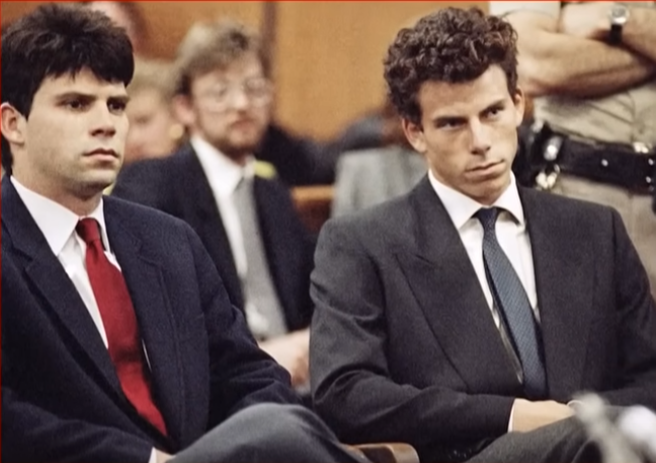Erik and Lyle Menendez have spent more than 35 years behind bars for the 1989 murders of their parents in their Beverly Hills mansion. Now, both brothers are appearing separately before California’s parole board to determine whether they deserve a second chance at freedom.
Why They Are Eligible Now
The hearings come after a May 2025 resentencing reduced their punishment from life without parole to 50 years to life. This change made them eligible for parole under California’s youthful offender laws, since Erik was 18 and Lyle was 21 at the time of the killings.
How the Hearings Work
Each brother will appear on separate days before a three-member parole panel. Erik’s hearing was scheduled for Thursday, with Lyle’s to follow on Friday. According to their attorney, Mark Geragos, parole hearings in California function like in-depth conversations rather than courtroom battles. The board asks probing questions about rehabilitation, remorse, and insight into the crime, while attorneys largely play supporting roles.
What Erik Will Highlight
Geragos previewed that Erik will focus heavily on the hospice program he pioneered in prison. The initiative, which has become a statewide model, provides care and dignity for terminally ill inmates. This effort, alongside his teaching of meditation and support groups, is expected to serve as evidence that Erik has built a meaningful life defined by service.
What Lyle Will Highlight
Lyle is expected to emphasize the Green Space program he co-founded, which creates outdoor gathering areas with trees and grass inside prison yards. He will also point to his mentorship programs that connect inmates serving life sentences with younger prisoners preparing for release. His defense will stress how these efforts show leadership, accountability, and a desire to help others.
A Behind-the-Scenes Process
The hearings are interactive and unpredictable. Parole board members ask most of the questions, though prosecutors can submit inquiries indirectly through the panel. Geragos described the process as “robust” and said board members often ask unexpected questions to test sincerity. Each day concludes with deliberations, and decisions are usually announced the same evening, though timing can stretch into the night.
Governor Newsom’s Final Say
Even if the parole board recommends release, the final decision will rest with Governor Gavin Newsom. Under California law, he has 30 days to affirm, modify, or overturn the board’s ruling, making him the ultimate arbiter of the Menendez brothers’ fate.
The Case for Release
Supporters point to more than three decades of apparent reform. Erik has taught meditation, founded inmate support groups, and learned sign language to communicate with deaf prisoners. Lyle has co-founded mentorship initiatives and trauma support groups. More than 20 relatives have formed the Justice for Erik and Lyle Coalition, arguing the brothers have shown remorse and accountability.
The Case Against Release
Prosecutors are not convinced. Los Angeles County District Attorney Nathan Hochman argues the brothers fabricated their abuse story and failed to fully accept responsibility. He also cites their disciplinary records, which include contraband, cellphone use, and fights during their early years in prison.
Could One Be Released Without the Other?
While their cases are considered separately, Geragos insisted that both brothers deserve release. Theoretically, one could be granted parole while the other is denied, but their attorney called that outcome unlikely, stressing that their rehabilitation and insight are equally strong.
Comparisons to Other High-Profile Cases
Hochman has compared the Menendez case to that of Sirhan Sirhan, the assassin of Robert F. Kennedy, whose parole Newsom denied in 2022. In that case, Newsom pointed to a lack of accountability, and prosecutors believe the same logic should apply here.
What Happens Next
If parole is recommended, Newsom’s office will review the decision. Family members and prosecutors can submit their opinions to the governor during the 30-day review window. If denied, the brothers still have pending clemency requests and petitions for new trials.
The Uncertain Road Ahead
The Menendez brothers have strong support from relatives and advocates who highlight their rehabilitation, but they also face determined opposition from prosecutors who see them as unrepentant. With Governor Newsom holding the final say, the outcome is uncertain. What is clear is that, for the first time in nearly four decades, freedom is a real possibility.
h/t: Steadfast and Loyal


Leave a Comment